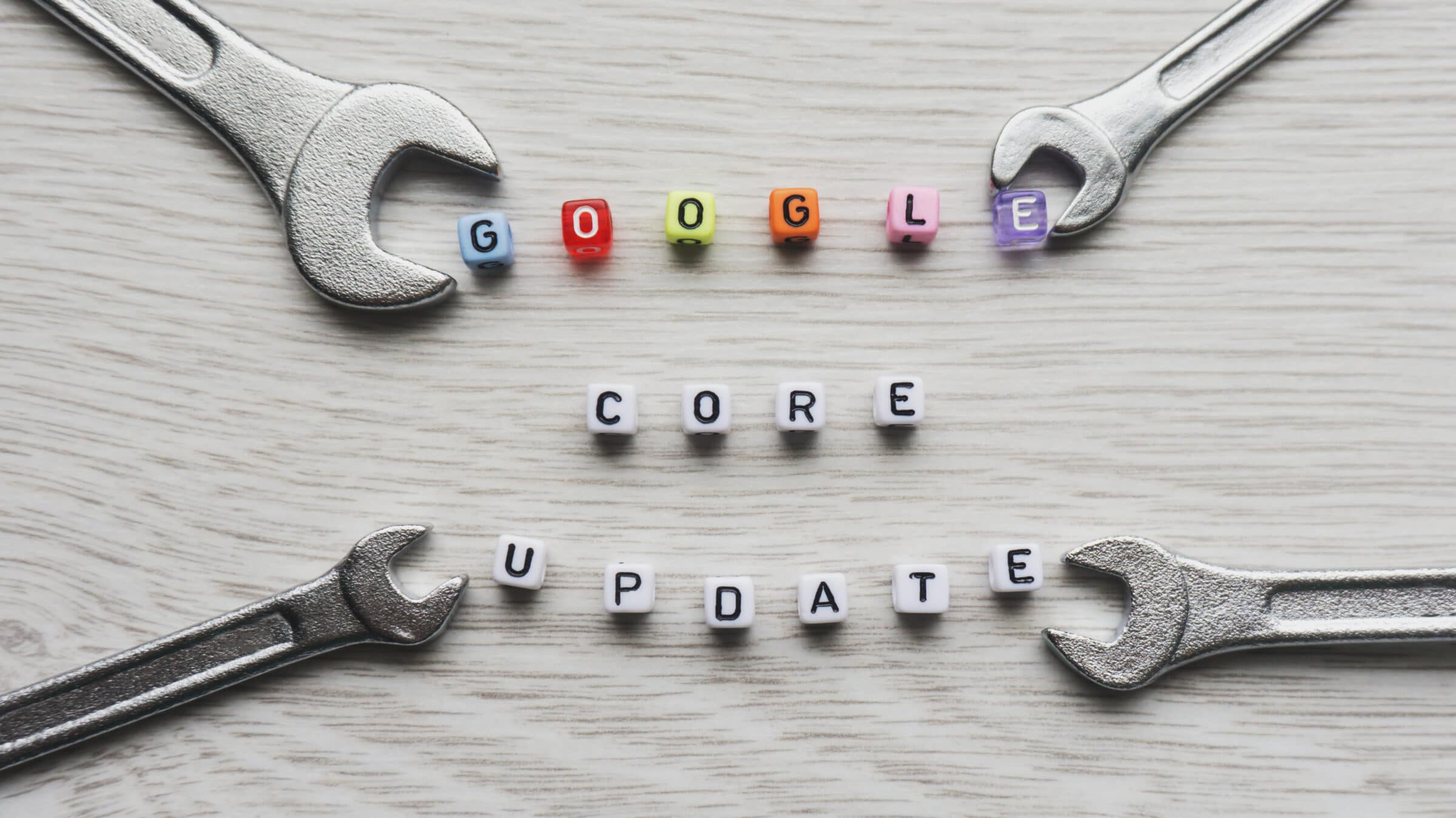What site owners should know about Google’s core updates
Google regularly releases small changes or updates to improve search results for its users. But what happens when they release a major update that affects algorithms, and what happens if you miss the notice before it happens?

What is a Core update?
Google gives a great analogy on how to understand how a core update operates:
“One way to think of how a core update operates is to imagine you made a list of the top 100 movies in 2015. A few years later in 2019, you refresh the list. It’s going to naturally change. Some new and wonderful movies that never existed before will now be candidates for inclusion. You might also reassess some films and realize they deserved a higher place on the list than they had before. The list will change, and films previously higher on the list that move down aren’t bad. There are simply more deserving films that are coming before them.”
So, if your website isn’t performing as well as it did previously, it’s probably nothing you’ve done. The system has just been changed to be more effective in how it assesses content overall, potentially making under-rewarded pages do better. This can be fixed by having a webmaster, such as the team at JezNorthWeb, who keeps on top of the core updates and helps you assess the quality of your content.

What to expect
Keeping in mind that a core update is a significant change that Google makes to its ranking algorithm that occurs once every two or three months on average, we can expect the Google search results to shuffle a bit. While this generally doesn’t affect the indexed web pages too much, the updates are designed to improve the quality and relevance of Google’s search results.
Depending on the keywords you’re using on your website, the core update may change your ranking in the Google search depending on how the formula for ranking was tweaked. In relation to the impact on SEO, they can be drastically affected essentially punishing websites with not much content. It’s important though to remember that some core updates affect more than just search rankings. Google’s core updates may restructure the search engine results pages as it adds, removes, or modifies any alternative listings in the SERPs.
Since Google announces their core updates before rolling them out, you or your website team can keep an eye out on Google’s Central Blog. There you will find timely news about the ranking algorithm and its core updates; you can also choose to receive emails to keep you up to date. Google also has a search liaison, Danny Sullivan, who tweets about any upcoming core updates and other Google-related news from the Twitter account.

What to do if you’re negatively impacted
If you’ve been negatively impacted, Google has a list of questions to ask yourself about your content on their developer’s section. Keep in mind that beyond asking yourself these questions it may be in your business’s best interest to have others you trust but who are unaffiliated with your site provide an honest assessment.
Content and quality questions
- Does the content provide original information, reporting, research, or analysis?
- Does the content provide a substantial, complete, or comprehensive description of the topic?
- Does the content provide insightful analysis or interesting information that is beyond obvious?
- If the content draws on other sources, does it avoid simply copying or rewriting those sources and instead provide substantial additional value and originality?
- Does the headline and/or page title provide a descriptive, helpful summary of the content?
- Does the headline and/or page title avoid being exaggerating or shocking in nature?
- Is this the sort of page you’d want to bookmark, share with a friend, or recommend?
- Would you expect to see this content in or referenced by a printed magazine, encyclopedia, or book?
Expertise questions
- Does the content present information in a way that makes you want to trust it, such as clear sourcing, evidence of the expertise involved, background about the author or the site that publishes it, such as through links to an author page or a site’s About page?
- If you researched the site producing the content, would you come away with an impression that it is well-trusted or widely recognized as an authority on its topic?
- Is this content written by an expert or enthusiast who demonstrably knows the topic well?
- Does the content have any easily verified factual errors?
- Would you feel comfortable trusting this content for issues relating to your money or your life?
Presentation and production questions
- Does the content have any spelling or stylistic issues?
- Was the content produced well, or does it appear sloppy or hastily produced?
- Is the content mass-produced by or outsourced to many creators, or spread across a large network of sites, so that individual pages or sites don’t get as much attention or care?
- Does the content have an excessive number of ads that distract from or interfere with the main content?
- Does content display well for mobile devices when viewed on them?
Comparative questions
- Does the content provide substantial value when compared to other pages in search results?
- Does the content seem to be serving the genuine interests of visitors to the site or does it seem to exist solely by someone attempting to guess what might rank well in search engines?

Confused? That’s Okay!
Here at JezNorthWeb, we understand how confusing it can be to prepare your website for a Google core update, let alone updating it after one. That’s why we prepare our client’s websites for core updates before it’s released or update them afterwards. If you’re feeling overwhelmed or confused, feel free to give us a call on 0455 029 199 or visit our website to request a quote today!







